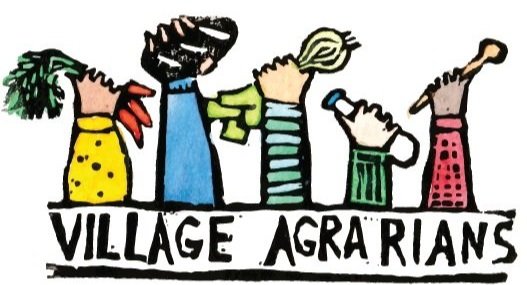I believe that if we use our joy as a compass to guide our actions, the world will be a kinder and more beautiful place.
Eve, the founder of Forage Flowers, gives us a brightly colored, and fragrant example of how following your joy is good for the world. Doing what she loves, Eve has started a small flower farm, growing beautiful, spray free flowers in West Auckland.
“My favorite thing is giving people flowers,” she told me. Involved in horticulture and ecology work for years, Eve found in her days as an ecologist she was most inspired by collecting native flowers and arranging them in her kitchen. Even as a kid, she knew where all the freesias grew along the beach. She loved to pick them and offer them to her neighbors and people she passed on her walks.
Now, Eve grows as many flowers as she can in her small 250 square meter garden, using dense and succession planting methods to ensure she always has blooms on the way (while still leaving plenty for the bees!). Starting Forage Flowers was not easy - Eve was building beds and learning to arrange and sell flowers all at once with the help of her husband, Sam. She was up into the wee hours of the morning every Friday night, preparing to sell flowers at The Shed Collective, a plant based market in West Auckland, on Saturdays during her first year of business in 2020.
Through her experience, Eve has learned some concerning things about the floral industry that demonstrate how important it is to consider where our flowers come from. She explained to me that many flowers sold in New Zealand are imported from overseas, and there is no requirement that their country of origin be printed, as there is with food. Imported flowers are fumigated to kill all bugs, and are dipped in roundup (glyphosate) before they come to the country to prevent them from growing here. She learned this when she asked a florist about buying some chrysanthemums to use to start her own from cuttings. The sad news from the florist was: it won’t work due to all the chemicals they have been treated with!
The lack of transparency in the floral industry makes it all the more important to buy locally grown, spray free flowers. Eve is happy that flower farms are becoming more popular in Aotearoa, and that flower collectives are starting around the country. The community of flower farmers is supportive and excited to share information to help make sustainable, quality flowers available here.
Forage Flowers is growing too. “Once it’s not your hobby anymore, it gets a bit hard,” Eve told me. All summer last year, she kept picking and picking to keep the flowers coming, and people would contact her all week to order more flowers. Happily, Forage Flowers will have some more hands when they hire their first employee soon. It is important to Eve to do everything well, and by that standard she is also committed to paying employees a living wage.
Along with expanding their team, Eve is hoping to expand the gardens. She is looking for opportunities for land sharing in West Auckland so that Forage will have room to grow. Landsharing is beneficial for all parties involved in that growers can access land without needing to purchase it, and the person sharing the land gets to enjoy the benefits of a grower stewarding a part of their land. Eve’s gardens are a dream for pollinators and humans alike, and anyone who shares land with Forage Flowers would be very lucky. We hope Eve finds a good opportunity to landshare soon, and that this type of relationship becomes more common and accessible for new growers.
To summarize her work as a new flower farmer, Eve reflected to me: “You bring people joy with your job. It’s not often you get to do that.”
If you live in the Auckland area, be sure to check out Forage Flowers and treat yourself to some of the joy Eve is growing this summer. She will continue to sell flowers at The Shed Collective, doing bouquet orders for special occasions and birthdays, and she is hoping to have a roadside stall up and running at the farm soon. You can see the latest from Forage Flowers on their Instagram or Facebook.
Written by Naomi Morgan
Photos by Eve Clarke


















